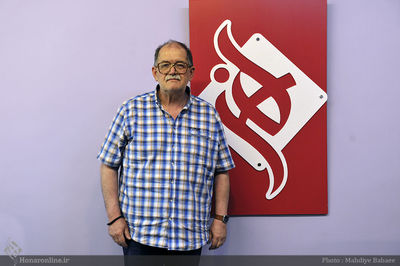Speaking to Honaronline, he said: The messages of the Persian poet and scientist are so obvious that they directly make a positive impact upon people’s thoughts and this is the miracle of his poetry. There have been many translations of Khayyam’s works but not all of them have been accurate. We cannot expect to enter the world and thoughts of Khayyam through translations; his message about knowledge and science is full of wonders.
He added: The most important improvement in our understanding of Khayyam was due to the works of our famous orientalist professor Fehim Bajraktarević (1889-1970), who was the founder of department of oriental languages and literatures in Belgrade University. He said in 1927 that Fitzgerald’s work was not just an English translation. It was a poetic paraphrase of Kayyam’s Rubaiyat which made him a very well-known Persian poet in the Western world.
He went on to explain: Khayyam in Persia was not known as a poet but as a mathematician and thinker. Only later to the reaction of what was happening in the world, he also became very popular in Iran. Now we have these reliable versions of his work by Sadegh Hedayat and Ali Dashti among others. Before that, we didn’t know which Rubaiyat belonged to Khayyam and which ones to Hafez. Professor Bajraktarević published in 1964 three hundreds Rubaiyat translated from so-called Cambridge manuscript in Serbian language. It was by the far, the best translation of Khayyam in our language, and so by that translation, we really had an opportunity to understand Khayyam in his greatness and his wisdom and his real glory, then we have strong tradition in translating and reading Khayyam and writing about him in former Yugoslavia and now in Serbia as well. Professor Bajraktarević translation of Khayyam work was really accurate and scholarly done. It was not an improvisation or poetical translation. It gives us precisely what Khayyam says in Persian language.
He said: We also have translation of Hafez and an excellent translation in 1928 of Ferdowsi’s Shahnameh (Book of Kings) in Serbia. This first edition will be financed and republished again by our Culture Ministry. The idea is to tell the world that we were first to translate it into our own language. We also want to improve our cultural relations with Iran. This includes through the publication of Blind Owl written by Sadegh Hedayat. These literary translations are helpful in broadening our cultural ties.
Elsewhere in his remarks, Tanaskovic said we should not limit ourselves to classic Persian literature. This is a thriving civilization that has continuity. It goes back to thousands of years before the Christ. We want to connect the past with the future and show your modern contemporary art as well. I feel there is some continuity between the past and the future. We should show that nowadays we are still living with the past Persian language and literature but in a contemporary form.
He also said new projects and programs are underway to enhance cultural relations between the two countries: I will inform the Serbian Culture Ministry and ask them to cooperate more with your institution in promoting Serbian and Iranian art and culture. Serbian art and literature can’t be compared to Iran’s but everybody has to respect himself and every identity is important. We will work with you anyhow.
In conclusion, Tanaskovic said Iran’s cultural activities around the world are the reasons why certain powers have been unable to depict a dark picture about Iran and its civilization and identity. He said Iran’s cultural attaches have also done a marvellous job to this end in Serbia. Culture is crucially important for better relations between Iran and Serbia political domains as well.
A number of Persian literature aficionados and experts on Persian mathematician, astronomer and poet Omar Khayyam took part in the Khayyam millennium celebration, which was organized by the Iranian Society of Cultural Works and Luminaries.
Khayyam is chiefly known to English-speaking readers through the translation by the English writer Edward Fitzgerald of a collection of his quatrains in the Rubaiyat of Omar Khayyam.

